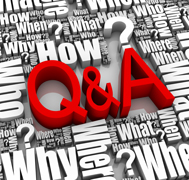
CRA Collections are More Aggressive Than Ever – How to Stop CRA Enforcement Action
 You might have heard the phrase “the bark is worse than the bite.” But when it comes to Canada Revenue Agency (CRA) collections, the bite is definitely scarier.
You might have heard the phrase “the bark is worse than the bite.” But when it comes to Canada Revenue Agency (CRA) collections, the bite is definitely scarier.

The CRA has many options available for collecting on unpaid tax debts – far more than other creditors, and often with less red tape involved.
CRA enforcement action might include:
- Wage garnishment.
- Requirement to pay from your clients, if you are self-employed.
- Frozen bank account.
- Liens against your assets, like your home.
- Criminal charges.
Unlike other creditors, the CRA is not required to give you any advance notice before freezing your bank account or garnishing your wages.
At best, this is inconvenient and embarrassing. At worst, it could result in losing a home, a car, or even in jail time.
In a recent CRA court case, a Surrey, B.C. man was sentenced to a 22-month conditional sentence, including eight months of house arrest. He was also fined $418,865.66 after pleading guilty to one count of tax evasion under the Income Tax Act. The CRA found that he had failed to report $1,284,254.81 of taxable income for the 2005, 2006, 2007, and 2008 tax years.
In another case, an Ottawa man was sentenced to a nine-month conditional sentence, including six months of house arrest, and a fine of $68,000, plus the full tax amount owing, after failing to report net business and rental income totaling $410,148 for the years 2009 to 2013.
Recent news releases shared that the CRA is becoming even more aggressive and cracking down on misuse of TFSAs, RRSPs, RRIFs, RESPs, and RDSPs. Federal Auditor General Michael Ferguson also found the CRA goes after average people aggressively for small amounts of tax owing, while offering amnesty and anonymity for those involved in sophisticated schemes.
In short, it’s better to avoid CRA collections at all costs if you can – but that is often difficult to do if you don’t have the money available to pay what is owing.
When you owe a tax debt you can’t pay, or have back taxes piling up, you need to take action. That is the only way to stop CRA enforcement.
This might look like:
- Securing a debt consolidation loan and using the money to pay the CRA, then paying back the loan over a fixed schedule.
- Accessing home equity and using the money to pay off the tax debt.
- Applying for CRA debt forgiveness programs. It’s worth noting that often these only deal with accumulated interest and penalties, but you still have to pay the principal tax debt.
- Filing for insolvency – either for a consumer proposal or for bankruptcy. This stops all CRA collection action.
You should never try to deal with the CRA on your own. While they may offer to negotiate, they could turn around and use the opportunity to gather your financial information to start enforcement instead. It’s better to work with a financial advisor who can be an intermediary.
At DebtCare Canada, we offer one of the only programs that can resolve a CRA back tax problem. When you work with us:
- Often your principal tax debt can be reduced.
- Interest and penalties immediately stop.
- Frozen bank accounts are unfrozen.
- Wage garnishments are lifted.
- Garnishments to customers are lifted.
- You are able to make a single monthly payment.
Don’t wait until CRA collections start. Contact us today for a free consultation. Call 1-888-890-0888 or visit www.debtcare.ca.


